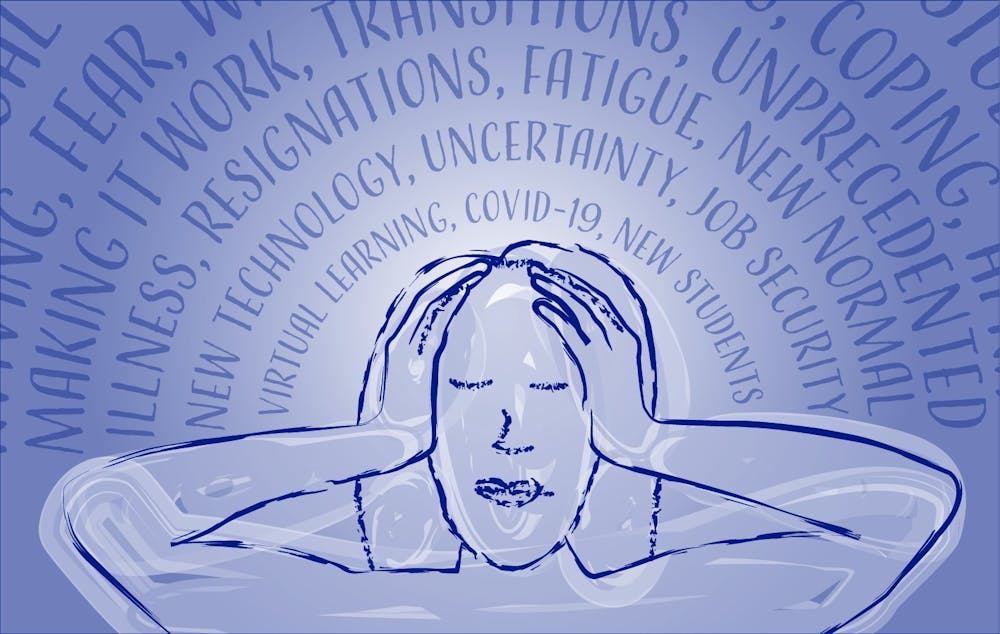CORRECTION: Due to an editing error, a previous version of this article used the incorrect political party affiliation for North Carolina Senator Deanna Ballard. The article has been updated to reflect the appropriate political party for Ballard. The Daily Tar Heel apologizes for this error.
This article was originally published as a part of the UNC Media Hub program in the Hussman School of Journalism and Media and has been republished by The Daily Tar Heel.
Each morning, Evan Davis’ classroom is his guest bedroom, which looks out at his backyard. A poster of Ruth Bader Ginsburg hangs over his shoulder and a bed sits just out of view of his laptop’s camera. Sometimes, Davis has to move a pile of clothes off the bed, ensuring a clean background for his students.
His wife, Liz, is also a teacher. She sits in her classroom at Pollard Middle School in Chatham County. A sea of empty desks sits in front of her with green masking tape marking where students should sit to maintain social distancing. Posters of historical figures hang from the walls. She has the challenge of teaching about 65 children in each of her classes. Some are classified as academically gifted, some have individualized education programs, some won’t be in her class the next day — a difficult group to plan lessons for.
Evan and Liz's experiences are emblematic of the unpredictability teachers face during the pandemic — from remote teaching to erratic attendance and keeping students engaged one year in. These issues are even more striking for those entering the workforce as student teachers, trying to establish their footing and style.
“I just hate the unknown,” Liz said. “And there was so much unknown.”
There still is. N.C. Sen. Deanna Ballard (R–Alleghany), co-chair of the Senate Education Committee, introduced a bill that would require all school districts to offer in-person instruction before the end of the school year. Gov. Roy Cooper is urging districts to offer in-person learning opportunities but vetoed the bill due to concerns about following NCHHS guidance.
The North Carolina Association of Educators says individual school boards should decide when to reopen, not the state.
There are many reasons why some school districts have elected to return to in-person instruction and why others are remaining virtual, including political climate, economics, population density and positive COVID-19 testing rates. The latter, however, can become an issue when testing is not required for teachers to work in-person, as is the case at Liz ’s school. Tests are available to Liz and her colleagues through the county’s health department.



